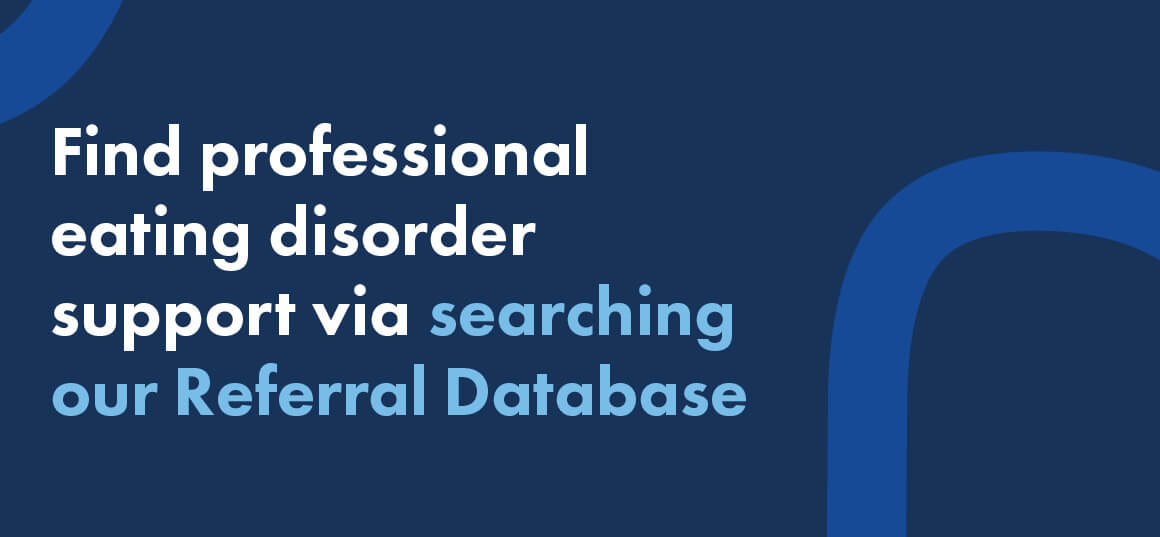Ambivalence to Eating Disorder Recovery
Research suggests that a lack of motivation in wanting to recover from an eating disorder is associated with high levels of treatment refusal, dropout and relapse[i]. Ultimately, no one can force recovery and motivation for change has to come from the individual themselves. Accepting this can be difficult, for the simple reason that many experience ambivalence in wanting to recover.
Ambivalence refers to “the state of having mixed feelings or contradictory ideas about something”; essentially, you are in two minds about if you want to recover.
Fluctuating between wanting to change and wanting to maintain your disordered habits can be confusing for both the individual and their loved ones. The reason ambivalence around eating disorder recovery is so common is because your eating disorder serves as an unhelpful tool to cope with difficult emotions or challenges[ii]. This is why a part of you might really want to cling to your illness, while at the same time another part of you wants to free yourself from the hold your eating disorder has over you.
On one hand, you can recognise that remaining ill and engaging in harmful eating disorder behaviours is psychologically and physically dangerous. You might be tired of dealing with the isolation, pain and anxiety that arises with a mental health issue such as an eating disorder. Research suggests that eating disorders often begin as a means of control, but as the disorder progresses you can often feel like you are instead being controlled by your behaviours.[iii]
On the other hand, you may be reluctant to recover because of the anxiety and uncertainty that may arise with treatment. Entering recovery will require you to face your fears head on, and your attitudes, behaviours, values and skills will likely have to change. You may be experiencing guilt, shame, anger, fear, exhaustion and grief.
All of these feelings are very normal and in fact part of the recovery cycle.
Beginning your recovery journey is often the hardest step, and it’s important to realise you won’t be made to face all your fears in one go. Eating disorder recovery occurs in stages and no one is expecting you to be healed immediately.
If you are struggling with an ambivalent mindset towards eating disorder recovery, here are some tips to help get you on track:
-
Explore and name your feelings and motivations:
Put pen to paper and explore your thoughts and feelings about why you think you are ambivalent to recovery. Writing down the positives and negatives that are associated with recovery can allow you to see the bigger picture, while boosting your motivation. You might like to share your insights with a trusted supporter, such as a loved one or treatment professional. Doing so can allow your support network to realise you are struggling with the decision and may require some extra help.
-
Remember eating disorder recovery is not linear:
It is normal to go through relapses and setbacks during recovery and you shouldn’t be discouraged if this occurs to you. While relapsing may feel like a step backwards, you can still learn much from a relapse or recurrence of your behaviours. For example, this might make your triggers more apparent, and you can learn new strategies to overcome these in the future. Learn more about the stages of recovery with NEDC’s resource “Stages of Change”.
-
It might get harder before it gets easier:
In order to create change and let go of the eating disorder behaviours, you will have to sit in uncomfortable feelings. Know that exposure to these changes will not always feel as scary as it does when you first begin. You will get better at managing your anxiety and thoughts around food, yourself, and your body. You will come out of this stronger.
-
Read stories of hope and recovery:
It can be beneficial to read stories and experiences from those who have recovered. They’ve been through what you are experiencing, and they’ve come out on the other side. Butterfly’s Share Your Story platform has a wide variety of stories that give an insight into the challenges and triumphs faced when managing and recovering from an eating disorder. You can read them here.
“Eating disorder recovery has been the hardest thing I’ve ever had to go through. But let me say to you, anyone that goes through an ED and comes out the other side is a special type of person. Because of my experience I’ve grown into a new person that I’m excited to get to know. And with my experience I bring something valuable. I bring courage (from all the times I chose to face my demons head on), I bring immense empathy (for I know what suffering is), I bring hope (because I am proof that it can get better), and I bring purpose and meaning (in advocating for those with EDs and being in training as a psychologist). In your recovery you will learn so much about yourself and all that you offer to the world, even if you feel like that is nothing right now. Hang in there and give your absolute all towards full recovery – it feels so good to be free.” – Anonymous
-
Be kind and patient with yourself:
It’s normal to feel frustrated by negative thoughts and impatient with the recovery process. Support can help you better understand why you might feel that way and it can also help you to come up with helpful ways to be patient and kind with yourself throughout the process.
How can you help your loved one overcome their ambivalence to recovery?
It can be challenging to see your loved one in psychological and physical distress because of their eating disorder, but they are still apprehensive to commit to recovery. It is important to avoid getting angry or frustrated with your loved one. Instead, try to remain calm and show you are supportive and compassionate by listening to their concerns and feelings.
Other ways you can help include:
- Take the focus off their disordered eating; instead, talk about their interests, goals in life and the things they may be missing out on as a result of the eating disorder. Try to boost their self-esteem and confidence; this will help them believe they can change.
- Demonstrate that you are listening to what they are saying and that you understand their struggle. You can even reinforce what they are saying by repeating it back to them; e.g. ‘I hear you saying that part of you feels like you want to change, while another part of you feels scared of changing…’
- Let them know you are pleased that they have shared their feelings with you and that you are willing to support them through the process of change and recovery.
- Communicate clearly and honestly about what the individual may expect during recovery. The individual will be going through a lot of uncertainty and change, so easing their mind in even a small way can be beneficial. This could include involving them directly with decisions about their treatment, so they feel empowered and respected. Focus on the process of recovery, rather than the end goal, as this may seem stressful or unattainable.
- Get support from the Butterfly Helpline. Our qualified eating disorder counsellors can provide you with tips to support your loved one, as well as referrals to specific eating disorder health professionals and treatment options closest to your area. It is also important that you look after yourself as a carer and our Helpline can provide strategies to ensure you are looking after your own mental wellbeing. 7 days a week, 8am-midnight (Sydney time)1800 33 4673, via webchat or email support@butterfly.org.au. Sometimes our lines may be busy, but please leave a message as someone will always get back to you.
Further information and help:
About eating disorder treatment
What causes an eating disorder?
Recovery from an eating disorder
References
[i] https://www.heretohelp.bc.ca/addressing-motivational-issues-eating-disorders
[ii] https://www.tandfonline.com/doi/abs/10.1080/87568225.2010.486291
[iii] http://eprints.bournemouth.ac.uk/19825/1/Williams%26Reid_post_print.pdf



















